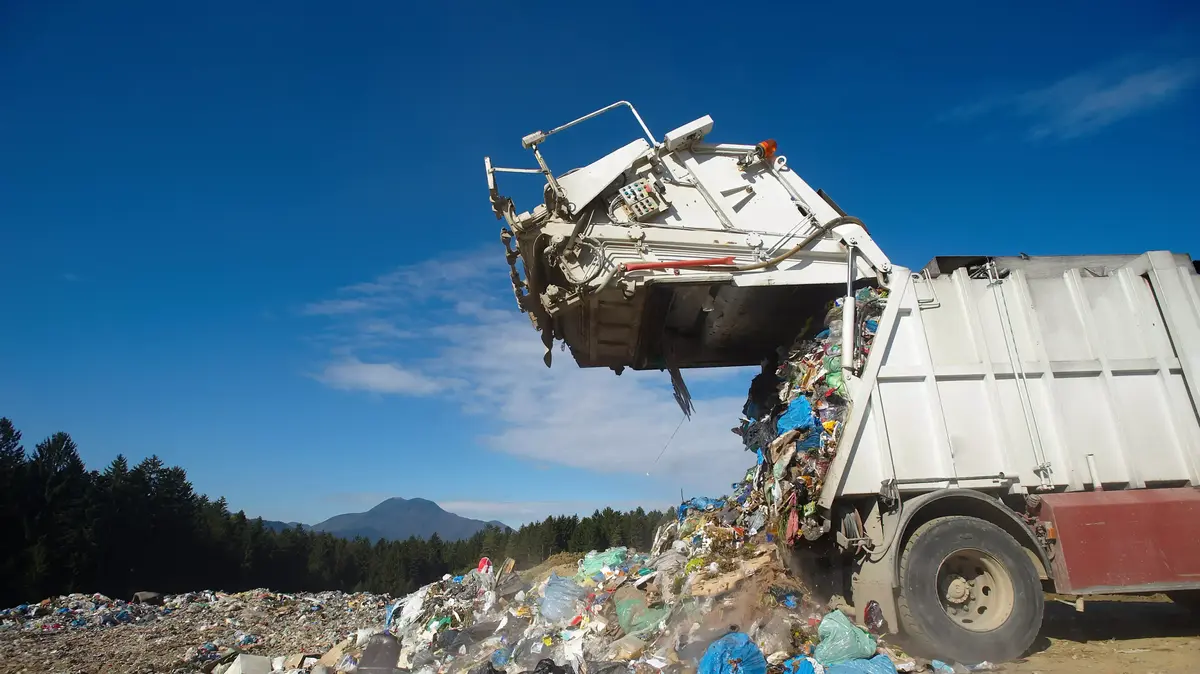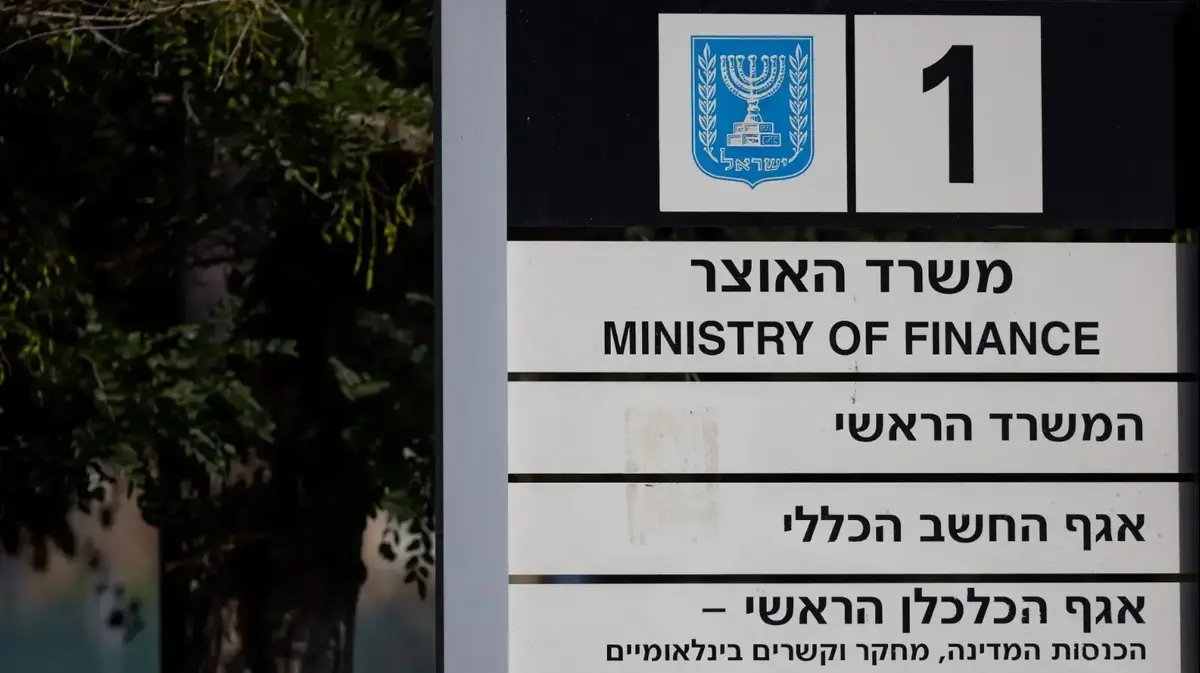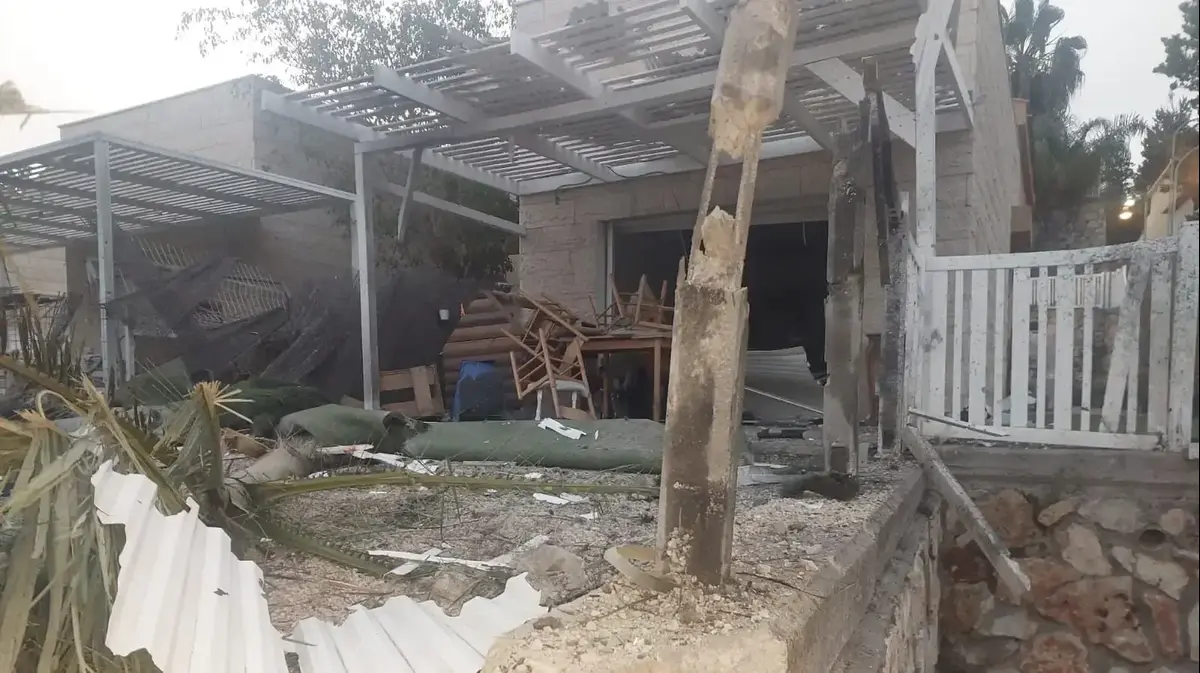news
News in Israel
Events in Israel
Ministry of Environmental Protection: Damage from food injection - NIS 23.5 billion per year
The National Food Loss and Rescue Report indicates financial loss and significant environmental damage.
The average family throws away food worth NIS 3,300 a year, and a total of 2.5 million tons are lost.
This, while 145,000 people are expected to deteriorate into food insecurity following the corona.
"Economic and social nonsense"
Tags
food
Ministry of the Environment
The environment
Yoav Itiel
Tuesday, November 10, 2020, 6:00 p.m.
Share on Facebook
Share on WhatsApp
Share on general
Share on general
Share on Twitter
Share on Email
0 comments
Palestinians are happy with Trump's loss, but do not expect miracles ...
A river in Russia has turned red
Biden: "Work on the vaccine must be transparent in order to ...
Netanyahu in Knesset debate on eradicating crime in the Arab sector: ...
Conversation between the director of the franchisees' struggle with the Herzliya municipality ...
Edelstein Duration of the bill to open Eilat and the Dead Sea; ...
The government has approved the establishment of a new settlement in the Gaza Envelope in the council ...
Netanyahu at the Corona Laboratory at Ben Gurion Airport: If there is no improvement, ...
Hundreds of participants in the funeral of Rabbi David Feinstein in Jerusalem ...
Elrai-Price: "If the morbidity does not decrease - we recommend stopping ...
Pfizer has announced that its vaccine for Corona is 90% effective ...
Representative of the Ministry of Defense in a discussion on the F35 deal in the Knesset refused ...
In the video - the cost of food loss in Israel is NIS 23.5 billion per year (Walla! NEWS system)
The value of lost food in Israel last year amounted to NIS 20.3 billion, about 1.5% of the national product - according to the national report on food loss and food rescue for 2019, published today (Tuesday) by Leket Israel and the Ministry of Environmental Protection.
2.5 million tons of food were dumped across the country, and the loss of value of the food was accompanied by environmental damage worth millions.
The findings of the report show that the average family in Israel throws in a food bin worth NIS 3,300 a year, an amount equivalent to a month and a half of food consumption.
Food loss at the home consumption stage constitutes about 55% of the total environmental costs of the phenomenon.
In total, the annual environmental cost of food loss is estimated at NIS 3.2 billion.
NIS 1.4 billion of the amount is due to unnecessary loss of land and water resources, another billion from greenhouse gas emissions and air pollutants and NIS 800 million is a direct cost of waste treatment.
Food loss produces about 1.9 million tons of municipal waste, more than a third of the total volume.
The economic, direct and external cost of treating waste as a result is about NIS 1.2 billion.
More on Walla!
NEWS
Face of Distress: The store closed and the business owner threw the goods into the street
Edelstein's move shatters hope in Eilat and the Dead Sea: "Tourism islands have become dead islands"
Get a good night's sleep: The method that will help you get rid of snoring quickly
"In the face of the crisis, the importance of saving food is rising more than ever."
Organizing grocery packages for the needy, in March (Photo: Reuven Castro)
Food loss is also responsible for 6% of greenhouse gas emissions, equivalent to the emissions of 1.6 million cars a year - about half of all cars in Israel.
Reducing food losses will significantly help the national effort to meet targets for reducing greenhouse gas emissions, to which the government pledged in the Paris Agreement signed at the UN Climate Conference in December 2015.
With food thrown away, 1,260 million kWh of electricity, electricity and equipment required Electronic and electric in Israel for an entire year;
70,000 tons of fuel, which can suffice for the annual refueling of about 160,000 cars;
180 million cubic meters of fresh water that could fill 56,000 Olympic pools or allow every citizen in the country to shower once a day for a year, and one million dunams of agricultural land - 20 times the area of Tel Aviv.
Nearly half of the food thrown away - 1.2 million tons worth about seven billion shekels It is salvable. In order to close the gap in food insecurity in Israel, it is necessary to save 20% of the lost food, worth NIS 3.2 billion. Saving food makes it possible to do so at a cost of only NIS 880 million. Water, 250 million kWh of electricity, thousands of tons of fuel, about NIS 220 million as a result of reducing greenhouse gas emissions and air pollutants and about NIS 160 million as a result of reducing waste treatment costs.
In addition, the effects of loss at all stages of the value chain increase food prices By about 11%, and it impairs productivity in the economy due to production and labor inputs that go down the drain.
More on Walla!
NEWS
"It will get worse": a 40% jump in the number of bankruptcies during the Corona period
To the full article
2.5 million tons per year
The Israeli branch of BDO, the world accounting firm, prepared the report according to the methodology of the United Nations Food and Agriculture Organization. Chen Herzog, the chief economist at the branch, says that "plus natural resource loss, greenhouse gas and air pollutant emissions and waste treatment costs, The total loss is about NIS 23.5 billion.
In this loss it was possible to finance one-fifth of the state's corona aid budget.
The loss of the food is foolish economically, socially and environmentally. "
According to wire wrapped, CEO of" compilation of Israel "," in light of the crisis corona growing, ever more importance to the adoption of saving food as a government policy that affects the areas of welfare, the environment, health and economy. "
According to BDO estimates, in Israel the corona crisis will lead to an increase of 145,000 people who will enter a state of food insecurity that they did not have before.
In addition, the crisis will exacerbate and deepen the situation of some 1,870,000 people who lived in food insecurity before the outbreak.
Saving food could have provided significant assistance to those families.
Possible savings of NIS 2.3 billion for the economy
In 2019, Leket Israel saved about 2.2 million cooked meals from IDF bases, hotels, catering companies and restaurants, and an additional 15.7 thousand tons of agricultural produce with a total value of about NIS 209 million. These surpluses are transferred weekly. More than 175,000 needy people through about 200 non-profit organizations across Israel. The
Minister of Environmental Protection, Gila Gamliel, said in response that "a food loss and rescue report shows that the effects of food loss on the environment and the economy are significant - but this is not a fate.
We are currently formulating a waste strategy in the office, which is also expected to deal with a reduction in the source of waste, including food waste.
We will continue to promote policy tools that will encourage the reduction of food loss and its effects on the environment. "
Share on Facebook
Share on WhatsApp
Share on general
Share on general
Share on Twitter
Share on Email
0 comments









